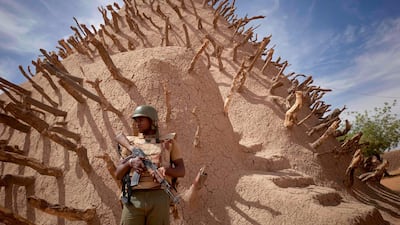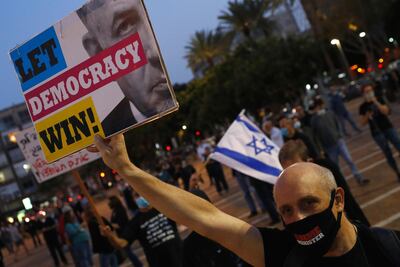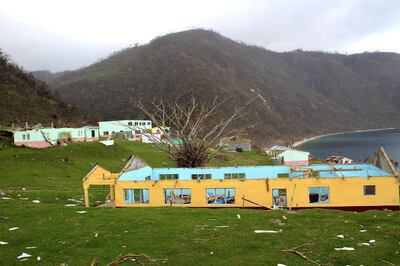Acts of intimidation and allegations of vote buying marred the final day of voting in Mali's delayed parliamentary election that is seen as crucial to reviving confidence in the state amid extremist violence.
Sunday's runoff in the West African nation of 19 million people was for 147 seats in the National Assembly.
Mali, one of the world's poorest countries, is struggling with an Islamist revolt that has claimed thousands of lives and forced hundreds of thousands from their homes.
In central Mali, the president of a voting station was forcibly removed and representatives of the electoral commission "chased away by armed men" on Sunday, one of the representatives told AFP.
Elsewhere, voting was cancelled after extremists threatened to attack voters, witnesses said.
The poll observer umbrella group Synergie said there had been many incidents of vote buying at several voting stations.
Provisional results are to expected this week.
The election had been repeatedly delayed, and the first round on March 29 was disrupted by extremist attacks as well as the kidnapping of opposition leader Soumaila Cisse.
It was the country's first parliamentary poll since 2013 when President Ibrahim Boubacar Keita's Rally for Mali party won a big majority.
The election had been meant to take place in late 2018 after Mr Keita was returned to office but was postponed several times, mainly because of security concerns.
Draft Israeli law could block Netanyahu's return
The Israeli opposition party Yesh Atid proposed legislation on Monday meant to bar Prime Minister Benjamin Netanyahu or any other indicted politician from forming a new government, a spokesman said.
The draft legislation does not present an immediate threat to Netanyahu or his troubled talks with rival Benny Gantz to form a joint administration, which broke off again on Monday without a breakthrough.
Mr Gantz, who is speaker of the Knesset, has up to 45 days to bring the proposed law to the legislature for a vote, and if his Blue and White party decides not to support it, it will not have a parliamentary majority to pass.
If Mr Gantz and Mr Netanyahu do not reach a coalition agreement by May 7, the Knesset will disband by law and Israel will head to its fourth round of elections in a little over a year.
New Vanuatu PM boosts storm recovery
The election of a new prime minister in Vanuatu is expected to speed up emergency relief work for residents of the Pacific island nation left without shelter by tropical cyclone Harold.
Bob Loughman, the leader of Vanua'aku, one of Vanuatu's oldest political parties, was elected prime minister 31-21 in vote by legislators, ahead of former foreign minister Ralph Regenvanu.
General elections were held four weeks ago, but the choice of Mr Loughman was only announced on Monday.
Cyclone Harold made landfall on April 6 but delivery of aid to residents left homeless on some islands has been hampered by the closure of Vanuatu's borders to prevent the coronavirus pandemic reaching the country.
Tess Newton Cain, adjunct associate professor for Asia and the Pacific at Griffith University in Australia, said the cyclone had added to the delay in counting after the general election.
She said there had been some international assistance, but concern was growing that efforts were too slow and some people were without shelter and facing possible food shortages.
"Now there is solid political leadership, it could spur on a faster and targeted response," she said.
Mr Loughman has been in parliament since 2004, and served as deputy prime minister and education minister, but is not well-known internationally.
Vanuatu, which has no Covid-19 cases, has received humanitarian aid on chartered flights from Australia, New Zealand, China and from New Caledonia on a French military aircraft.

Mozambique sends back alleged Brazilian drug lord
Mozambique has expelled one of Brazil's most wanted criminals, an alleged drug lord who has been on the run for two decades.
Gilberto "Fuminho" Aparecido dos Santos was sent home on a Brazilian air force plane that left Maputo in the dead of night at 1.30am with dozens of police officers on board, the authorities said.
Brazil's justice ministry said Sunday that Mr Dos Santos has been placed in a federal prison in the country.
Mr Dos Santos was arrested on April 13 in an international sting operation that included agents from Brazil, Mozambique and the US Drug Enforcement Administration.
The Mozambican authorities decided on Friday to expel him for allegedly entering the country illegally but kept the decision secret until he had left.
He is an alleged leader of the First Capital Command (PCC), considered to be Brazil's top criminal gang wielding control over cocaine supply routes from Colombia, Peru and Bolivia.
Its leader, Marcos Willians Herbas Camacho, is serving a sentence of more than 200 years in a maximum-security prison in the capital Brasilia.
Burkina Faso troops accused of civilian massacre
Burkina Faso's security forces allegedly executed 31 unarmed detainees in the northern town of Djibo, Human Rights Watch said on Monday, calling for an immediate investigation.
The men, all from the Fulani ethnic group, were allegedly killed just hours after being arrested on April 9 during a government counter-terrorism operation, the New York-based rights group said.
The incident took place in Djibo, about 200 kilometres north of the capital Ouagadougou.
It made "a brutal mockery of a counter-terrorism operation that may amount to a war crime and could fuel further atrocities", said Corinne Dufka, the HRW's director for the Sahel region.
HRW interviewed 17 people about the killings, including 12 witnesses to the arrests and later burial of the victims, the statement said.
Local people speculated that the Fulani had been targeted because of the recent presence of some armed Islamists around Djibo.
The victims were taken away in a convoy of about 10 military vehicles including pickup trucks, an armoured car and motorcycles, it said.
After hearing gunfire, local people found the bodies of 31 men, last seen in the custody of the security forces, said HRW. Several had had their eyes or hands bound.
None of the witnesses saw any of the arrested men with a firearm.
Burkina Faso has battled an extremist insurgency since 2015. The conflict has provoked attacks on Fulani herders whom other communities accuse of supporting militants.



